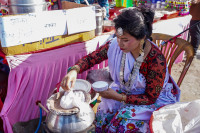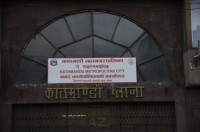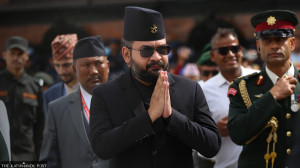Life & Style
Kathmandu’s queer ‘oasis’
Inclusive Galaxy, an eatery in Kathmandu true to its name, welcomes everyone—queer and non-queer alike—to share a comfortable space.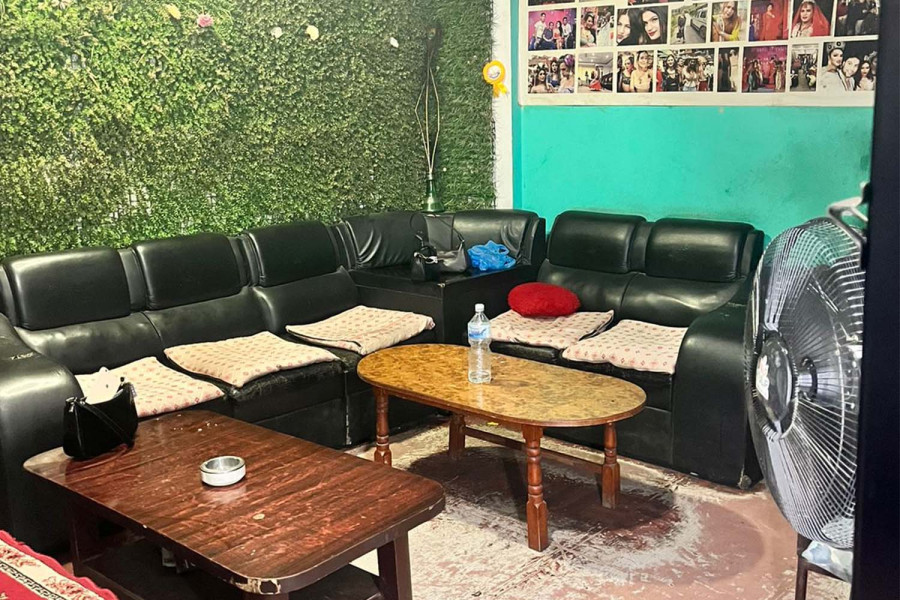
Aarati Ray
In a world where acceptance and safety often seem difficult to attain, many queer individuals also struggle to find a safe space to express themselves. They have to hide their true self and face relentless judgement when going to public places like cafes and restaurants.
This is the reality for countless LGBTQIA+ individuals. The need for a safe space for this community is not just a desire but a necessity—a space where one can be themselves. This struggle for safety and acceptance can be traced to crucial historical moments, such as the Stonewall Riots of 1969 in New York City.
The Stonewall Inn was more than a bar; it was a refuge for the queer community. When police raided the bar, the community fought back. This series of violent confrontations, which began in the early hours of June 28, 1969, between police and gay rights activists, marked the beginning of the modern LGBTQIA+ rights movement.
The spirit of Stonewall, the fight for dignity and the right to exist openly lives on in places like Inclusive Galaxy Restaurant in Kathmandu. Inclusive Galaxy beyond a restaurant is an ‘oasis’ for the queer community and beyond.
Founded by Bishwaraj Adhikari, Mr Gay Handsome Nepal 2013, a human rights defender, the restaurant proves the power of safe spaces. It’s a place where the community can unite, free from the prejudice and hostility that often permeate their everyday lives.
After years of working in the human rights sector, Adhikari and his partner developed the idea for Inclusive Galaxy. What began as a small cafe gradually evolved into a full-fledged restaurant, driven by the growing demand and support from the community.
“In developed countries with strong LGBTQIA+ movements, you can find community areas like gay villages. These are created as safe spaces for people whose families and communities have excluded them. They also support new business ideas and pink tourism. I hope to see pink tourism develop in Nepal someday,” says Adhikari.
His vision for Inclusive Galaxy goes beyond just being a restaurant. He aims to promote financial independence and empowerment within the queer community.
Since its inception in February 2019, Inclusive Galaxy has become a key spot for many in Lazimpat, a relatively queer-friendly area in Kathmandu. The location is essential because the first LGBTQIA+ movement in Nepal started in 2001 through the Blue Diamond Society.
Inclusive Galaxy, true to its name, welcomes everyone—queer and non-queer alike—to share a comfortable space. His vision was clear: to create a space where people of all genders and sexual identities could come together without fear of exclusion.
“I didn’t want to make it exclusively for queer people because that would be excluding ourselves from society. Different groups need to live together and understand each other,” Adhikari explains.
In the early days, the cafe attracted both queer and non-queer customers. However, when some of the residents learned about Adhikari’s identity and the nature of the clientele, there was a brief period of hesitation.
“At first, I didn’t understand what was happening, but then I realised my identity was an issue for a few people. I believe people should be judged by others by their character, not by their gender or sexuality. Over time, as residents saw that we operated like any other cafe, they became more comfortable,” Adhikari reflects.
Adhikari started Inclusive Galaxy to give queer individuals a place to be proud of themselves, counteracting the self-doubt and insecurity that hiding one’s identity can cause. This turned the cafe very quickly into a community hub.
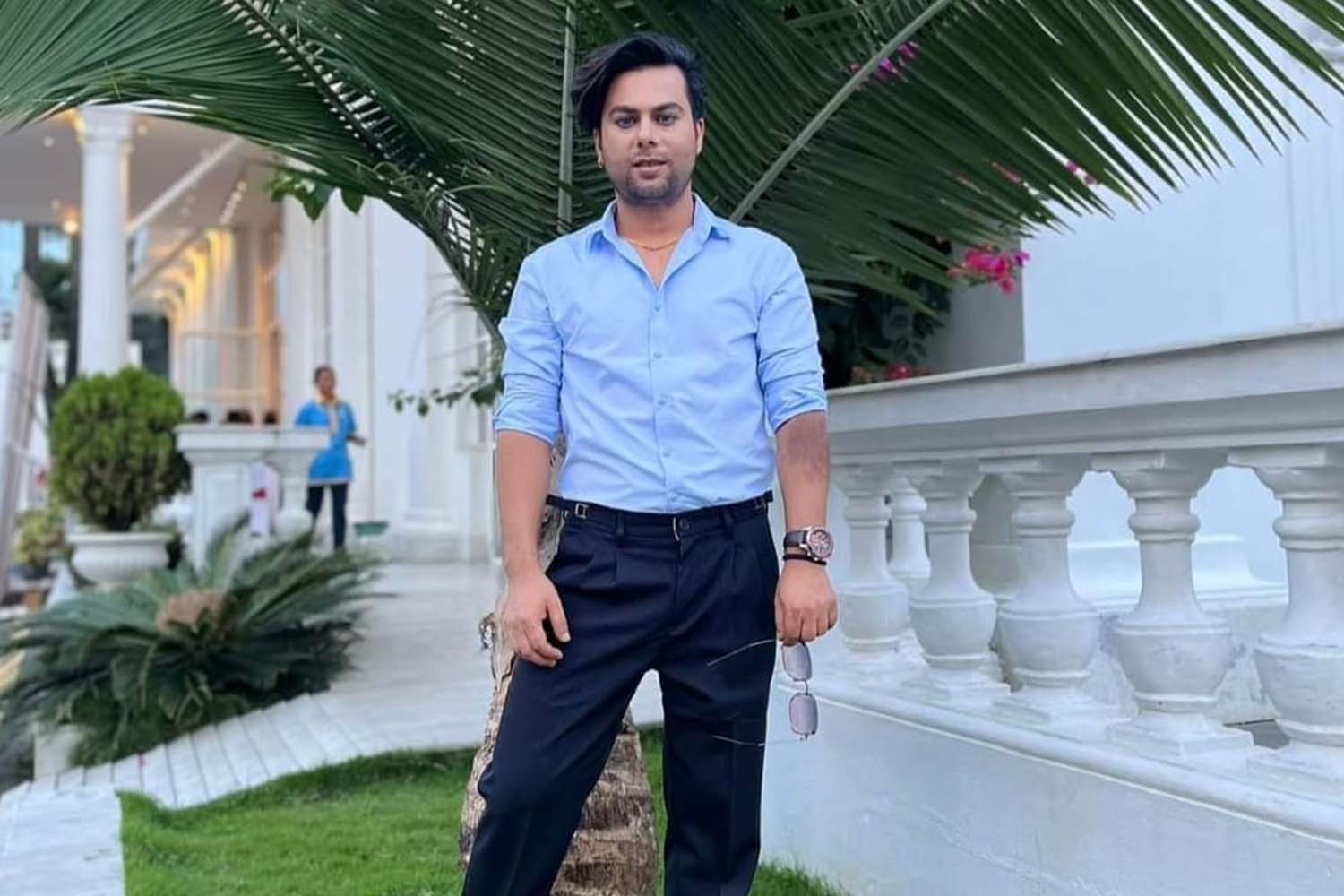
The journey was not without challenges, though. It was difficult to hire staff and cooks from the LGBTQIA+ community, and soon after the restaurant opened, the COVID pandemic made things even harder.
Despite these difficulties, the doors of Inclusive Galaxy remained open. During the pandemic, many queer individuals, who were abandoned by their families or afraid to return home, found comfort at Inclusive Galaxy.
Since many couldn’t afford to pay for meals, the restaurant provided free food from its resources. As the number of people needing meals grew to 20-30 daily, Adhikari started raising funds within the community.
“During my time as an activist, many people came here not only for food but also to see an organisation where the queer community supports one another,” Adhikari says.
“The time during COVID was difficult, but it brought me closer to the community.”
Four years after its inception, the restaurant has garnered a loyal following. Sarosy Neupane, Miss Pink Nepal 2024 first runner-up, describes Inclusive Galaxy as her second home. She moved to Kathmandu to study in 2022. Being distant from her family, she started visiting Galaxy for meals that reminded her of home-cooked food. Over time, she grew attached to the café because of its welcoming atmosphere.
“It’s heartwarming to see people from our community and different walks of life here. The founders even invite us to festivals like ‘Dahi Chiura Khane din,’” she shares.
Neupane visits the cafe regularly and sometimes stays until 3 am, engrossed in conversations. “I hope more spaces like this can open in the future. If, unfortunately, this place were to close someday, I don’t think we’d have any other place to turn to,” she adds.
Muna Chhetri, a trans woman who has been a loyal customer for three years, shares, “This is my safe space where I can truly be myself. I always feel judged in other restaurants, but that fear doesn’t exist here. It’s where even those who aren’t accepted at home can feel accepted.”
Sahara Khadka Chhetri, owner of Pink Tiffany, Kathmandu’s first openly LGBTIQIA+ friendly restaurant and bar, frequently visits after managing the bar, appreciating the convenience of not cooking at home.
She notes very few places like this cater to our community, and some even had to close during COVID. “As an entrepreneur, I know that sustaining these spaces is a challenge. But as more spaces like these open, they will make the way for a more inclusive and compassionate society.”
The welcoming atmosphere at Inclusive Galaxy has also had a surprising effect on non-queer patrons. Samriddha Jung Rana, a twenty-year-old neighbour who identifies as straight, often visits the café and appreciates the importance of such spaces.
“Previously, I didn’t know much about the queer community and didn’t care much. But now, coming into this café, I’ve been interested in their rights and issues. I’ve realised that we’re not so different after all. We are all human,” he remarks.
The ventures like Inclusive Galaxy and Pink Tiffany have inspired hope for collaborative businesses between queer and non-queer groups. The recent initiative by the Nepal Tourism Board promoting Pink Tourism in April 2024 is a positive step. Still, Adhikari believes that more support is needed from the government and the private sector.
Despite the progress, challenges remain. However, Adhikari remains optimistic about the future. He is working on plans to develop the restaurant into a homestay program in the future.
“Like how different planets, asteroids, and stars make up a beautiful galaxy, people from all walks of life and identities make a beautiful society. I am happy that we are assimilating together in this space. We are not so different; we are all different and similar simultaneously,” he says.




 12.12°C Kathmandu
12.12°C Kathmandu


